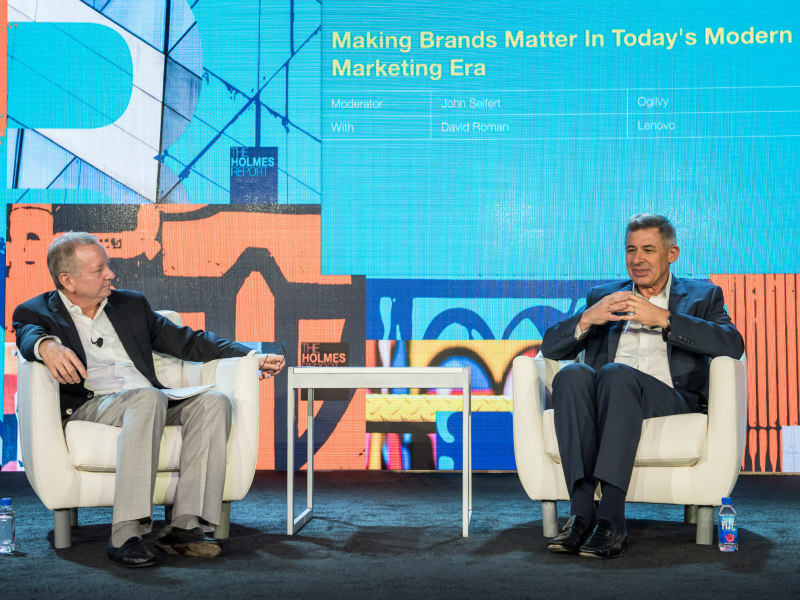Arun Sudhaman 24 Oct 2017 // 6:18PM GMT

MIAMI — The role of the CMO is rapidly evolving, but must remain rooted in building a brand that represents a set of values, said Lenovo CMO David Roman during PRovoke17 in Miami today.
Roman was discussing how brands remain relevant in today's marketing landscape, in a conversation with Ogilvy CEO John Seifert. Chief among the concerns discussed was how CMOs respond to an environment where activist investors are slashing marketing budgets in a bid to drive better margins.
In response, Roman said that "the concept of the value of a brand is always there," adding that customers "will pay more for brands." However, he admitted that marketers must still prove that they are "seen as vital to the development of the brand."
"It’s much more than a bit of advertising," explained Roman. "Building a brand means representing a set of values that the customer associates you with. It’s crucial that marketing is driving all of that."
Yet that challenge is only amplified by the way in which the CMO role is changing, thanks to what Roman described as a relatively unique ability to see a company "from the outside in."
"The pace of transformation just keeps on accelerating — the new business opportunities and threats are just coming in so quickly," said Roman. "The CMO is actually in a pretty privileged position, you get a lot of access and we bring those insights. So you’re seeing more and more CMOs taking on the growth role, in terms of identifying a trend that’s happening or identifying a competitive threat."
However, while some things change, Roman was keen to reiterate that much remains the same, even accounting for the hype about how big data will fundamentally reshape the marketing role. Indeed, he believes that the "industry has gone too far" in suggesting that the CMO and CIO roles will merge, and called for marketers to retain the unique skills that involve much more than just gathering information.
"I don’t think the information itself is a competitive advantage," he said. "In the end, you still need insights and the creativity of agencies to take that information and translate that into a competitive advantage. I don’t think it fundamentally changes the marketing proposition."
That goes for the rise of management consultants too, despite the insecurity they are causing among marketing agencies. "There are some areas where have to learn more of the analytical skills we don’t have — that’s where sometimes the management consultants have the expertise they can bring to bear," admitted Roman. "These are issues marketing has always had, but I don’t think the technology and media changes will affect the basic model."
What does change the marketing proposition, though, is the need for complete transparency. "In this digital age, we’re giving up on that control," said Roman. "But what you get in return is people who can help you with your products and help you tell your stories. I think it’s helping companies get much better because now we have to be transparent — there’s no point holding back anything."


































.jpg)

















